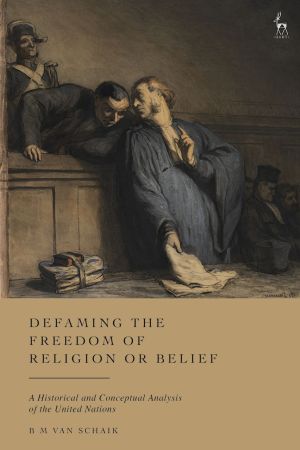
This book explores the intricate terrain of international religious freedom discourse. It examines the evolution and controversies surrounding the formulation and interpretation of the freedom of religion or belief as a universal right within the United Nations.
From legal and philosophical standpoints to the political dimensions of the subject, the book navigates through the complex terrain, shedding light on challenges to the universality and non-discriminatory implementation of this fundamental freedom. Beyond theoretical and legal debates, the study reveals how actors within the United Nations have 'defamed' the freedom of religion or belief, reshaping its interpretation away from its original 1948 objectives.
The book explores the dynamic interplay of postmodern views, legal intricacies, and political perspectives, contributing to a potential diminishment of the normative force of related legal provisions. It addresses critical topics including religious tolerance, blasphemy, defamation of religion, and apostasy, offering a comprehensive understanding of the evolving landscape of international human rights discourse. This is an indispensable resource for scholars, policymakers, and anyone seeking a profound insight into the challenges and transformations shaping the global pursuit of religious freedom.